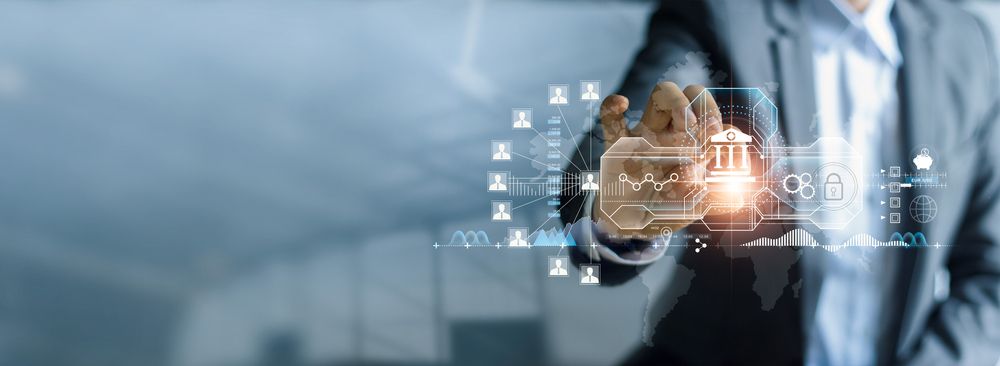
In the era of digital transformation, where convenience is king, we have embraced the ease of managing our finances with just a few clicks or taps. From transferring funds to paying bills, banking has never been more accessible. However, with this accessibility comes a greater need for security. In an age where cyber threats are on the rise and personal information is a hot commodity, the importance of secure banking cannot be overstated. It is not just about protecting your money, but also about safeguarding your personal information and your peace of mind.
Understanding the Risks of Digital Banking
The digital landscape is a playground for cybercriminals, with banking systems being one of their favorite targets. Phishing attacks, where unsuspecting users are lured into providing sensitive information, are becoming more sophisticated. Malware can infect devices and log keystrokes, capturing passwords and account numbers. Even public Wi-Fi can be a danger zone, as hackers may intercept data transmitted over unsecured networks.
The consequences of such breaches are not minor. They can lead to financial losses, identity theft, and a damaged credit score, which can take years to restore. Thus, understanding the potential risks is the first step in protecting yourself. Banks invest heavily in cybersecurity measures, but as consumers, we must also be vigilant. Recognizing the signs of fraudulent activity, using strong and unique passwords, and verifying the security of your online environment are crucial habits to develop.
The Role of Banks in Protecting Your Information
Banks have a vested interest in keeping your information secure. Not only is it a matter of customer trust, but there are also regulatory requirements that financial institutions must adhere to. Security measures such as encryption, two-factor authentication, and continuous monitoring of transactions are standard protocols. Banks also employ dedicated cybersecurity teams to thwart attacks and respond to any breaches swiftly.
Behind the scenes, banks are constantly updating their security infrastructure. They utilize machine learning and artificial intelligence to detect unusual patterns that could indicate fraudulent activity. They also ensure that their staff are trained in best security practices and that customers are educated on how to protect themselves.
It is in the interest of banks to make their systems as impenetrable as possible. However, the security of your financial information is a shared responsibility. By staying informed about your bank’s security features and how to use them, you can play a significant role in the safeguarding process.
Enhancing Personal Security Measures
While banks do their part in securing systems, personal vigilance is equally important. This includes monitoring your accounts regularly for any unauthorized transactions. Setting up alerts for account activity can serve as an early warning system for potential fraud.
Another critical measure is to maintain strong, unique passwords for each financial account and to change them regularly. Consider using a reputable password manager to keep track of your credentials. Additionally, never share your banking information with anyone, and be cautious of unsolicited communications asking for personal details.
Secure banking also extends to your physical devices. Ensuring that your computer, smartphone, or tablet has up-to-date security software can prevent malware from compromising your banking information. Be mindful of the networks you connect to, especially when conducting financial transactions; using a virtual private network (VPN) on public Wi-Fi can add an extra layer of security.
The Future of Secure Banking
As technology evolves, so do the security measures that protect our banking experiences. Biometric authentication, using fingerprints or facial recognition, is becoming more common, providing a more personal and potentially more secure form of verification. Blockchain technology is also being explored for its potential to create tamper-proof records of transactions.
The future of secure banking is likely to include even more personalized security protocols, such as behavioral biometrics, which track patterns in how a user interacts with their devices. These could include typing speed, mouse movements, and even the angle at which a phone is held. Such details are difficult for a fraudster to replicate, making them a powerful tool in the fight against cybercrime.
Ultimately, as banks continue to innovate in the realm of security, customers must remain engaged and informed. Embracing new security technologies and practices can help ensure that as our banking becomes increasingly digital, it also becomes increasingly secure.
The importance of secure banking in today’s digital world cannot be overstated. As we continue to enjoy the convenience of online and mobile banking, we must also recognize the responsibilities that come with it. Understanding the risks, utilizing the security measures provided by banks, and enhancing our personal security practices are all essential steps in safeguarding our assets and information.
Remember, secure banking is a partnership between financial institutions and their customers. By staying informed, vigilant, and proactive, we can all enjoy the benefits of digital banking while minimizing the risks. After all, in the world of finance, peace of mind is just as valuable as the assets we work so hard to accumulate.
